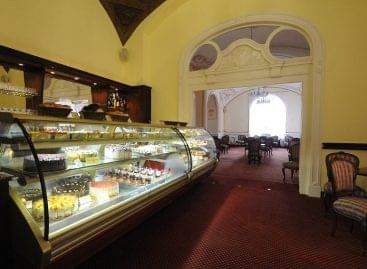Despite the lack of labor and overheads, Balaton caterers do not have a bad season
Despite restrained consumer spending, increased operating costs, and inflationary pressures, the overall season for Lake Balaton’s hospitality businesses, including cafes and buffets, doesn’t look bleak. Even though media criticism targeting the quality of popular local snack “lángos” has been a recurring theme throughout the summer, the situation remains positive.

The picture is a blend of experiences but not alarming. The weather has been favorable for Lake Balaton, benefiting businesses operating there. The beachside cafes, restaurants, and outdoor seating areas have managed to remain open even after the August 20th holiday, despite the typical summer heatwaves. Additionally, accommodation facilities in most areas have been fully booked by vacationers, indicating a robust continuation of the tourism season. This comes as a relief for businesses, where packed beach lines and sold-out tables, especially during dinner hours, signal that there’s still revenue to be made in the summer, and consumption is livelier than anticipated.
However, companies in the highly weather-dependent seasonal hospitality sector are evaluating various factors this year. The sharp increase in energy costs has prompted many small businesses to consider closing earlier than usual to ensure profitability. Due to exorbitant labor costs, some are reconsidering whether it’s worth extending their opening hours into September. The situation is mixed: while some places have benefited from vacationers, most are reporting a break-even season, and there are entrepreneurs who plan to close their doors permanently in the coming fall.
Challenges in the Labor Market At the start of each season, labor shortage emerges as an acute problem. Skilled workers are scarce; many have migrated elsewhere or have been preoccupied by more prestigious restaurants. Even entry-level positions constantly require reliable employees.
This year, the pressure has slightly eased due to experiences shared by hospitality businesses. The decline in the construction industry has led many to return to their previous jobs, making wage demands less stringent. Seasonal workers are now more willing to accept lower wages compared to the 25,000-30,000 daily earnings they made at construction sites.
To secure reliable workers at Lake Balaton, a substantial financial investment is required. Most establishments register their employees at minimum wage, supplemented by tips to enhance their take-home pay. One local entrepreneur from Almádi mentioned that a competent chef can earn nearly one million forints, while waitstaff receive a minimum of six hundred thousand, which they consider the bottom line. These wage levels typically come with few days off, as hospitality businesses adapt their operations to demand, with weekends and holidays being less of a resting period.
According to a seasoned entrepreneur, a competent hospitality professional on the northern coast can certainly justify these wage levels. However, they noted that there’s a competitor who has decided not to risk it next year, opting to cease their operations instead.
Related news
The Bubi pilot period continues: you can still test Mobi points with bikes until the beginning of March
🎧 Hallgasd a cikket: Lejátszás Szünet Folytatás Leállítás Nyelv: Auto…
Read more >State support scheme
🎧 Hallgasd a cikket: Lejátszás Szünet Folytatás Leállítás Nyelv: Auto…
Read more >Related news
Retail sales of organic products in Hungary increased by 13.9% – our country is the second fastest growing market in the European Union
🎧 Hallgasd a cikket: Lejátszás Szünet Folytatás Leállítás Nyelv: Auto…
Read more >Nearly 140 domestic suppliers, 60% growth – SPAR Regions Treasures program accelerates with AI solutions
🎧 Hallgasd a cikket: Lejátszás Szünet Folytatás Leállítás Nyelv: Auto…
Read more >








